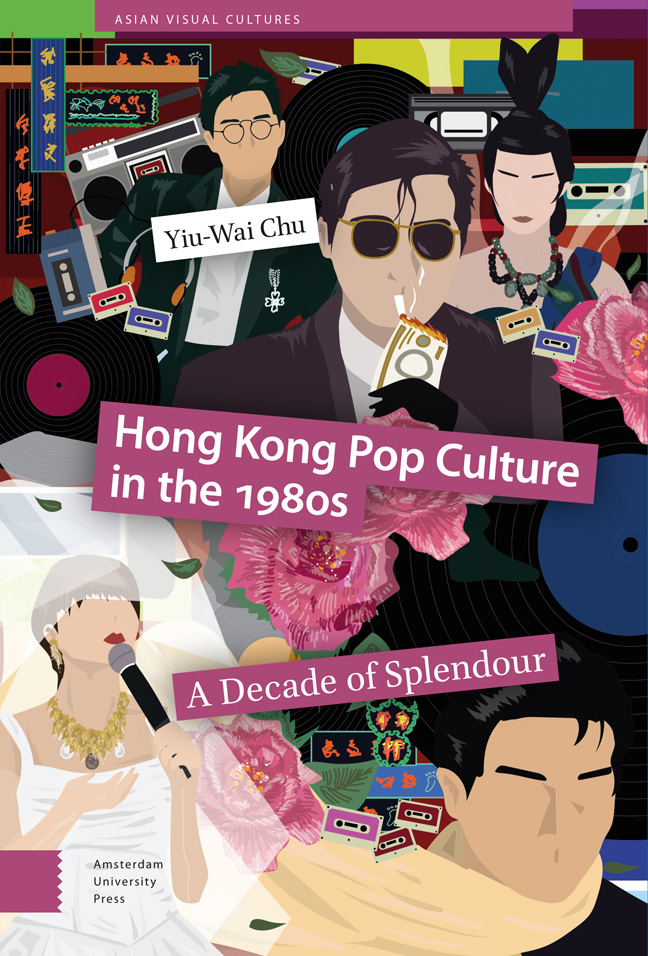Book contents
- Frontmatter
- Acknowledgments
- A Note on Romanization and Translation
- Contents
- Dedication
- Prologue: Horse Racing and Dancing as Usual
- Introduction
- 1 Televising Pop: New Stars and Renewed Sensibilities
- 2 Golden Days of the Silver Screen: Cinematic Imagination in a Not Yet Fallen City
- 3 The Sound of Chinese Cool: Do You See the City Sing?
- 4 The Importance of Being Chic: Fashion, Branding, and Multimedia Stardom
- 5 The Practice of Everynight Life: Disco as Another Kind of Dance
- 6 (Un)Covering Cosmopolitan Hybridity: Every Great City Deserves a City Magazine
- Epilogue: ‘We’ll Always Have Hong Kong’
- Select Bibliography
- Glossary
- Index
5 - The Practice of Everynight Life: Disco as Another Kind of Dance
Published online by Cambridge University Press: 20 February 2024
- Frontmatter
- Acknowledgments
- A Note on Romanization and Translation
- Contents
- Dedication
- Prologue: Horse Racing and Dancing as Usual
- Introduction
- 1 Televising Pop: New Stars and Renewed Sensibilities
- 2 Golden Days of the Silver Screen: Cinematic Imagination in a Not Yet Fallen City
- 3 The Sound of Chinese Cool: Do You See the City Sing?
- 4 The Importance of Being Chic: Fashion, Branding, and Multimedia Stardom
- 5 The Practice of Everynight Life: Disco as Another Kind of Dance
- 6 (Un)Covering Cosmopolitan Hybridity: Every Great City Deserves a City Magazine
- Epilogue: ‘We’ll Always Have Hong Kong’
- Select Bibliography
- Glossary
- Index
Summary
They came to dance, but ended up getting an education.
Abstract
Besides the dancing that would continue after 1997 according to Deng Xiaoping, disco was seen as another kind of dancing that shaped another dimension of the city's nightlife in the 1980s. This chapter investigates the thriving disco scene in Hong Kong in the 1980s, which provided excellent venues for Hong Kong people “to see and to be seen”. After the signature Disco Disco opened its door to trendy celebrities in the now-world-famous Lan Kwai Fong in December 1978, an epidemic of disco fever spread across the territory. Hong Kong's disco culture is also examined in the light of Cantonese disco songs and Hong Kong stars/celebrities.
Keywords: Lan Kwai Fong, nightlife, Disco Disco, Canton, feel for the game
Dance, But Not As Usual
As mentioned in the Prologue, dancing symbolized the lifestyle of Hong Kong with the saying ‘horse racing and dancing will continue, and capitalist lifestyle will remain unchanged,’ in which dancing referred to dancing at nightclubs – a nightlife that showcased the city's success in the capitalist world-economy. Besides the dancing that would continue after 1997 according to Deng Xiaoping, some other dancing venues became chic trendsetters of not only the territory but also neighbouring regions. While the never-sleeping city saw big spenders in money-squandering ‘hostess’ nightclubs, disco was also seen as a kind of dance that shaped another dimension of Hong Kong's nightlife in the 1980s. Derived from ‘discotheque’, a type of dance-oriented nightclub that first appeared in the 1960s, disco became not just the preeminent form of dance music but also a culture of nightlife in Hong Kong in the late 1970s. In the aftermath of Saturday Night Fever (1977; premiered in Hong Kong in 1978), the disco wave was triggered in the territory, which later proved to be important in propelling pop idols to stardom. If nightlife was ‘one of society's few sanctioned antidotes to the monotony of the day-to-day, or what the French call le quotidian’, then disco as another kind of dancing in Hong Kong made the nightlife of this never-sleeping city even more diverse and fascinating. Interestingly, if nightclub dancing was seen as representing the lifestyle that was promised not to change after the handover in 1997, nightlife at trendy discos evinced a quickly developing pop style that uplifted the city throughout the decade.
- Type
- Chapter
- Information
- Hong Kong Pop Culture in the 1980sA Decade of Splendour, pp. 177 - 212Publisher: Amsterdam University PressPrint publication year: 2023



